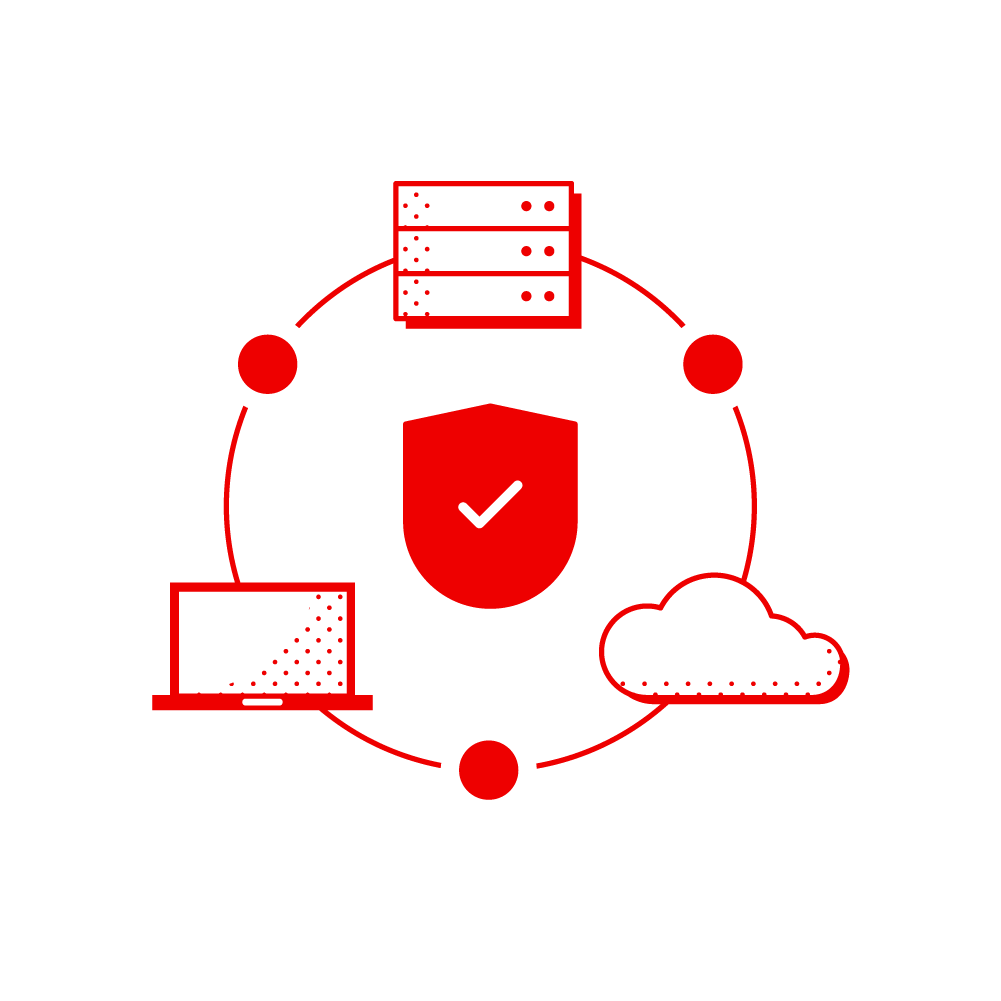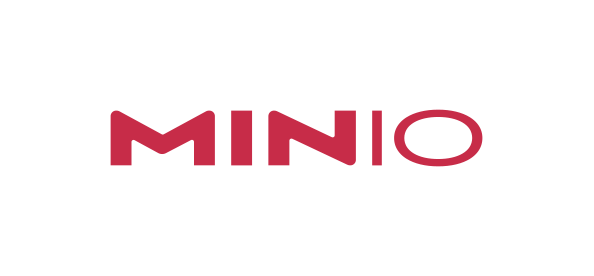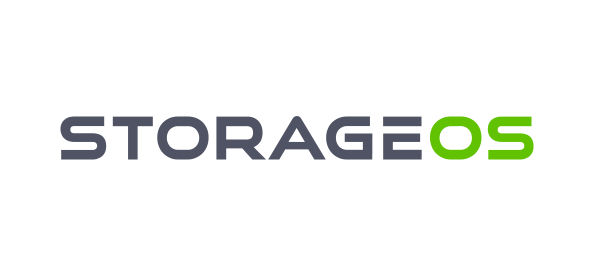Storage Infrastructure with Red Hat and Partners
Simplify storage management with a modern, software-defined storage infrastructure
Build a modern storage infrastructure
Storage infrastructure is a subset of IT infrastructure that encompasses storage disks and arrays, networking to connect storage hardware to the larger IT infrastructure, and the software that enables storage administrators to manage storage.
Because data is at the core of a modern organization, enterprises need to be able to process and analyze massive amounts of data to inform business decisions, boost efficiency, reduce costs, improve security, and increase customer satisfaction. Modern storage systems have evolved to handle these enormous data sets, and often encompass traditional on-premises storage infrastructure as well as containerized and cloud storage methods.
To help reduce the complexity of these sprawling data storage landscapes, Red Hat offers storage and data services and works closely with storage ecosystem partners to test, certify, and integrate the technologies you need to build more efficient, resilient, secure, and regulatory-conformant storage infrastructure.
Why is modern storage infrastructure important?
Every organization depends on information, regardless of the products or services they offer. Traditional proprietary, appliance-based storage is not intended for today’s data-driven, distributed workloads with their requirements for scalability, flexibility, data protection, data placement, data retention, and data analytics.
Software-defined storage (SDS) essentially decouples the software that manages the storage from the hardware and frees you from having to invest in storage appliances that bundle proprietary software and hardware. Instead, with SDS you can run storage software on the same industry-standard servers you use for everything else and scale your storage resources across bare-metal and cloud environments.
Decoupling storage software from its hardware allows you to expand your storage capacity as you see fit, when you see fit, instead of scrambling to add another piece of proprietary hardware. It also allows you to upgrade or downgrade hardware whenever you want. SDS puts enormous flexibility in your hands. Data services provide a foundational layer for applications to function and interact with data in a simplified and consistent manner.
Solution overview
Use software-defined storage for hybrid cloud and multicloud container deployments
As organizations rely on cloud-native computing to develop, deliver, and manage enterprise applications, data services like data security, governance, discovery, and resiliency become more important. Many applications have built-in redundancy, but architecting a resilient deployment is essential to delivering high availability and disaster recovery. Without data services that help developers and data scientists collaborate as data moves among systems, cloud-native application development is impossible. Red Hat® Data Services is a portfolio of solutions that offers persistent software-defined storage and data services. Red Hat OpenShift® Data Foundation is a key product in the portfolio and is integrated with and optimized for Red Hat OpenShift.
OpenShift Data Foundation is an efficient, unified, and simplified storage platform that gives organizations the flexibility to scale as their needs evolve. It helps organizations cope with the massive growth in data and improves their ability to derive meaningful insights from their data. It is built for modern workloads, including data analytics, artificial intelligence (AI) and machine learning (ML), object Storage-as-a-Service (STaaS), archiving, and backup. Unlike traditional network-attached storage (NAS) and storage area network (SAN) approaches, it offers predictability—even as the number of clusters grows.
OpenShift Data Foundation runs anywhere Red Hat OpenShift does: on-premises or in the public cloud. The platform provides file, block, and object storage classes, enabling a wide range of data workloads, including:
- Data at rest, like databases and data warehouses
- Data in motion, automating data pipelines
- Data in action, providing services for continuous deployment models, analytics, AI, and ML
Transform your business with Red Hat and our certified partners
Red Hat works closely with storage partners to certify integrations with Red Hat Enterprise Linux®, Red Hat OpenShift, Red Hat Ansible® Automation Platform, and Red Hat OpenStack® Platform. The ecosystem gives you choice when deploying rich, critical applications in hybrid environments and to help solve the storage issues of efficiency, resilience, security, governance, and discovery.
| Vendor | Efficiency | Resilience | Security | Governance | Discovery |
|---|---|---|---|---|---|
| Red Hat OpenShift Data Foundation | ✔ | ✔ | ✔ | ✔ | ✔ |
| Bacula Systems | ✔ | ||||
| Dell Technologies | ✔ | ✔ | ✔ | ✔ | ✔ |
| IBM | ✔ | ✔ | ✔ | ✔ | ✔ |
| LINBIT | ✔ | ||||
| MinIO | ✔ | ||||
| NetApp | ✔ | ✔ | ✔ | ✔ | ✔ |
| Portworx by Pure Storage | ✔ | ✔ | ✔ | ✔ | ✔ |
| Robin Systems | ✔ | ✔ | |||
| StorageOS | ✔ | ✔ | ✔ | ✔ | ✔ |
| Storware | ✔ | ||||
| Trilio | ✔ | ✔ | |||
| Veeam (including Kasten) | ✔ | ||||
| Veritas | ✔ | ✔ | ✔ | ✔ | ✔ |
Partnership
Red Hat storage partner ecosystem
Increase storage efficiency and resilience
Explore Red Hat Storage Infrastructure ISV partners below, or visit the ISV partner page to find certified and supported partner solutions across a range of use cases.
Bacula Enterprise is an enterprise-class backup and recovery solution that offers advanced, automated Red Hat OpenShift backup with cluster support. Its Red Hat OpenShift backup and restore module makes container orchestration more deployable than ever before, and its backup and recovery capabilities include persistent volumes. It provides a large range of architecture flexibility and possibilities.
Dell EMC PowerProtect Data Manager delivers next-generation data protection that enables faster IT transformation, while giving you the assurance that you can easily safeguard and quickly unlock your data’s value.
IBM Spectrum Protect Plus is a modern data protection solution that provides recovery, replication, retention, and reuse for virtual machines (VMs), databases, applications, file systems, Software-as-a-Service (SaaS) workloads, and containers in hybrid cloud environments. When coupled with Red Hat OpenShift and OpenShift Data Foundation, the solution is deployed as a virtual appliance or as a container application. With support for Kubernetes, IBM Spectrum Protect Plus lets organizations protect, back up, and restore complete containerized applications, including persistent volumes, namespaces, resources, and metadata for disaster recovery or development and testing operations.
NetApp’s innovative open source technologies include enterprise storage solutions combined with Red Hat OpenStack Platform, Red Hat OpenShift, Red Hat Ansible Automation Platform management and orchestration tools, and solutions built on FlexPod converged infrastructure. NetApp Astra achieves its objectives in delivering seamless data protection to Kubernetes-native applications running on one or more Red Hat OpenShift clusters running on-premise or across datacenters. The Ansible and NetApp integration provides idempotent provisioning.
LINBIT SDS makes building, running, and controlling block storage for containers simple. LINSTOR is open source software designed to manage block storage devices for large Linux server clusters and offers a free trial.
MinIO’s high-performance, Kubernetes-native object storage suite is built for the demands of the hybrid cloud. As a software-defined storage solution, it delivers a consistent experience across every Kubernetes environment.
Portworx Enterprise is full-featured container data services for DevOps and the enterprise. Portworx Enterprise pools existing servers, SANs, NAS, direct-attached storage (DAS), and cloud instances to create an integrated storage cluster and provide data services directly to containers. Portworx Enterprise Operator manages the install and upgrade workflow of all components that make up the Portworx Data Platform. PX-Store provides built-in high availability for all stateful applications and allows failed pods to recover in seconds. PX-Security is a critical component of the Portworx Platform that provides container-granular role-based authentication, authorization, and ownership in addition to encryption.
TrilioVault for Kubernetes offers cloud-native, application-centric backup and disaster recovery with one-click integration into Red Hat OpenShift Container Platform and Red Hat OpenShift Container Storage for simplified management—certified by Red Hat. TrilioVault for Kubernetes v2.0 includes a management console to discover, control, and manage data protection for Kubernetes applications across hybrid and multicloud environments.
Robin Storage is a CSI-compliant block storage solution that integrates with Kubernetes-native administrative tools. Robin Storage manages application and data as a single entity on Red Hat OpenShift, all while delivering bare-metal performance. Robin Cloud Native Storage is a purpose-built container-native storage solution that brings advanced data management capabilities to Red Hat OpenShift.
StorageOS is cloud-native, software-defined storage for databases, message queues, and other stateful workloads in Kubernetes when rapid recovery and fault tolerance are essential. It enables security at every layer of the stack with automated certificate management, secure endpoints, and encryption of data between nodes.
Storware vProtect is an agentless backup and snapshot-management solution suite for virtual environments and cloud. It allows you to reliably improve and automate backup performance, automate recovery tests, and significantly save resources, time, and money.
Kasten K10 by Veeam works with Red Hat OpenShift to deliver resilience and durability, performing durable backups of Red Hat OpenShift Container Storage storage classes, metadata, and local persistence of the backup to minimize restore time. Kasten K10 offers a wide choice of authentication tools, secure access to the K10 dashboard and APIs, and a flexible permissions model.
Veritas NetBackup provides a robust backup solution by delivering ransomware protection for containerized environments, immutability for Amazon S3, and integrated anomaly detection. Veritas protects against ransomware from edge to core to cloud—and from traditional to virtualized to containerized environments.
Resources
You might also like:














